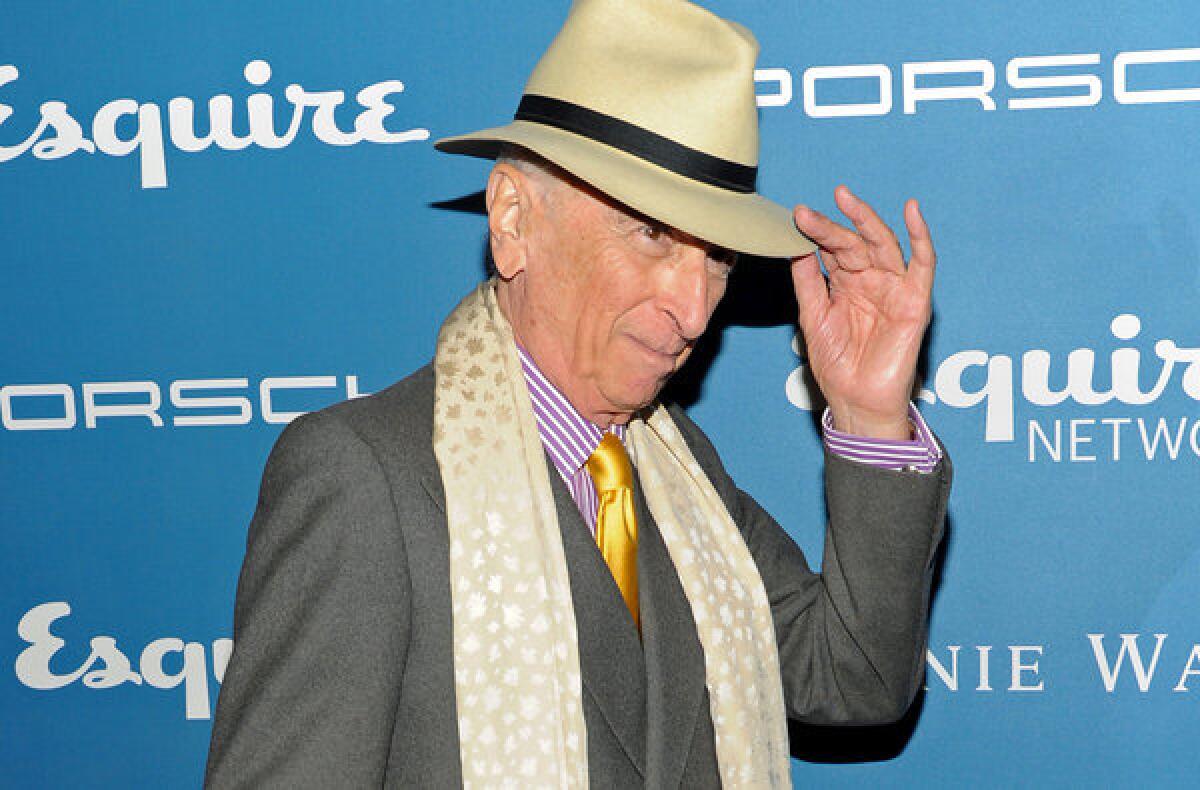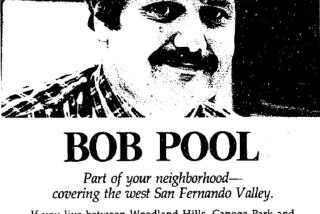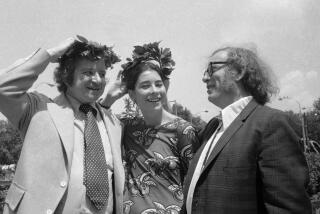Inside the legendary Gay Talese story ‘Frank Sinatra Has a Cold’

- Share via
Gay Talese came to be known as one of the most elegant, intelligent magazine writers of the 20th century. While he has written many brilliant pieces, the most indelible is his 1966 Esquire story headlined “Frank Sinatra Has a Cold.”
At the Neiman Storyboard on Tuesday, Talese sat down to talk about the piece with Elon Green. Talese explained that he didn’t want to write the story in the first place, contextualizing some choices he made as a writer in a detailed annotation. It’s a fascinating dip into Talese’s creative process.
One of the things that makes the profile so significant is that it’s a landmark piece of what would become known as New Journalism. Practiced by Talese, Tom Wolfe, Joan Didion and others, New Journalism expanded the scope of straight reporting to include stylistic choices and even flights of fancy that could be found in novels.
Talese emphasizes that when Green asks him about this passage: “[‘In the Wee Small Hours of the Morning’] is a lovely ballad that he first recorded ten years ago, and it now inspired many young couples who had been sitting, tired of twisting, to get up and move slowly around the dance floor, holding one another very close. Sinatra’s intonation, precisely clipped, yet full and flowing, gave a deeper meaning to the simple lyrics — ‘In the wee small hours of the morning/while the whole wide world is fast asleep/you lie awake, and think about the girl....’ — it was like so many of his classics, a song that evoked loneliness and sensuality, and when blended with the dim light and the alcohol and nicotine and late-night needs, it became a kind of airy aphrodisiac. Undoubtedly the words from this song, and others like it, had put millions in the mood, it was music to make love by, and doubtless much love had been made by it all over America at night in cars, while the batteries burned down, in cottages by the lake, on beaches during balmy summer evenings, in secluded parks and exclusive penthouses and furnished rooms, in cabin cruisers and cabs and cabanas — in all places where Sinatra’s songs could be heard were these words that warmed women, wooed and won them, snipped the final thread of inhibition and gratified the male egos of ungrateful lovers; two generations of men had been the beneficiaries of such ballads, for which they were eternally in his debt, for which they may eternally hate him.”
Talese was influenced by the short stories of Irwin Shaw and F. Scott Fitzgerald, particularly by Fitzgerald’s sense of passion and longing. But he wasn’t writing a short story, he was writing a magazine profile. This passage, he explains, “It’s like fiction. But it’s not necessarily fakery or fabrication.”
That goes to the heart of New Journalism, which moved the boundary so it was all right for a writer to use her imagination to make a scene come alive.
It was, in part, born of necessity. Esquire assigned the article and slated it for the cover; Talese grudgingly took it on, thinking there was anything new to say about a man who’d been famous for 30 years. “Why would you do another piece on Angelina Jolie? Can you imagine doing another piece on Angelina Jolie? Or Brad Pitt? Or George Clooney?” Talese asks now.
An interview with Sinatra was scheduled, but he didn’t want to be interviewed. And what Sinatra did or didn’t want to do was the law in his universe.
So Talese hung around and watched Sinatra when he was supposed to be talking to him, waiting for an opportunity and observing. He interviewed everyone he could, friends and managers, bodyguards, a wigmaker. He is meticulous in his research and execution.
“The creativity in journalism is in what you do with what you have,” Talese says.
ALSO:
7 ways Leo Tolstoy is like Harvey Weinstein
Celebrating the endangered world of print for a good cause
Andrew Wylie criticizes Amazon’s ‘megalomania’ in the New Republic
Carolyn Kellogg: Join me on Twitter, Facebook and Google+
More to Read
Sign up for our Book Club newsletter
Get the latest news, events and more from the Los Angeles Times Book Club, and help us get L.A. reading and talking.
You may occasionally receive promotional content from the Los Angeles Times.











